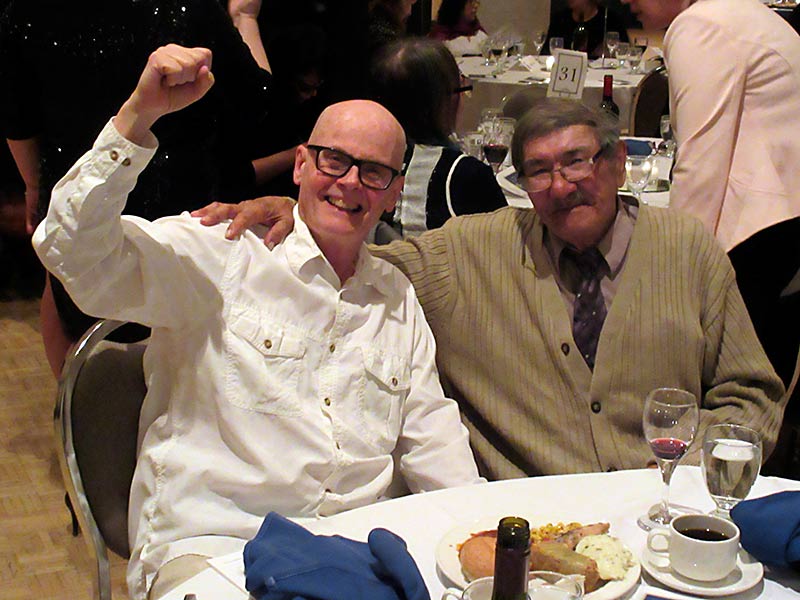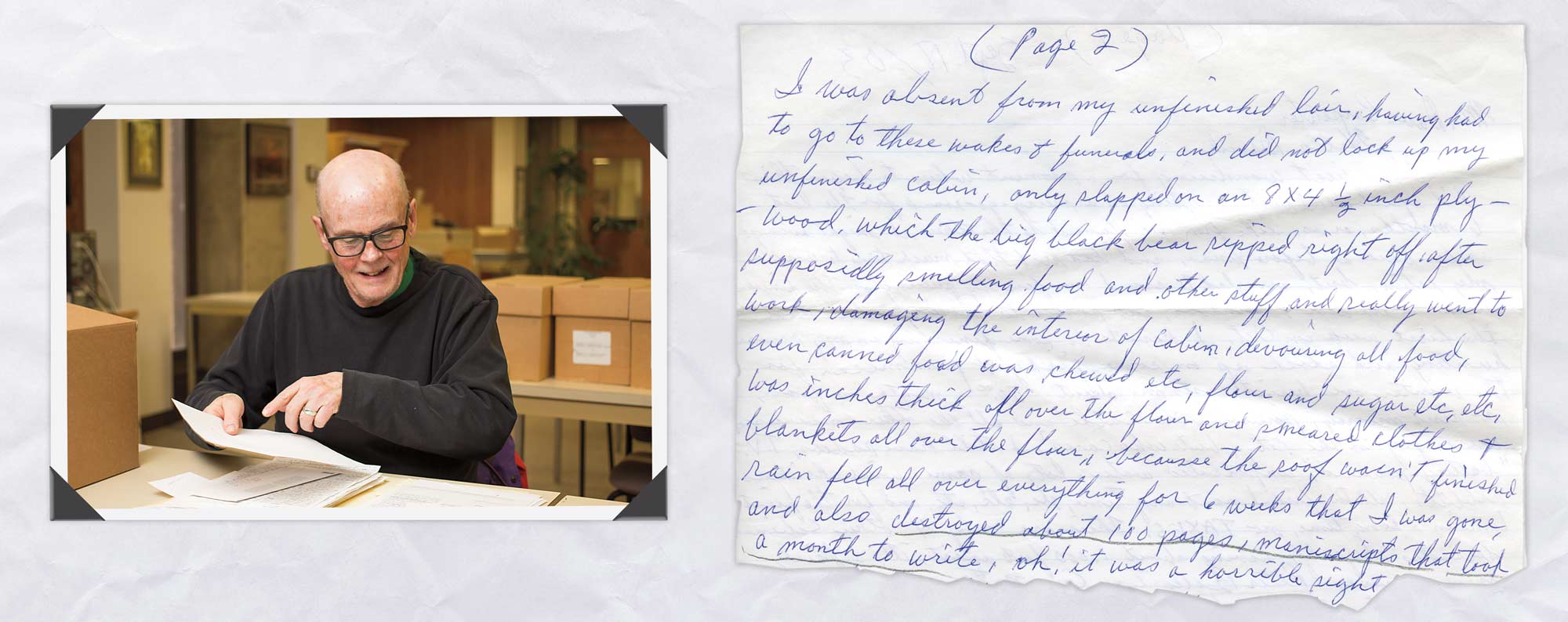IN THE SPRING OF 2001, Professor Emeritus David Carpenter received a call from the Department of English regarding a mysterious letter addressed to “the dean of the University of Saskatchewan.”
“Dear Sir,” it said. “I really don’t know where to begin or how to ask someone of your high position this rather odd request.”
Offering “the best fishing in all of Saskatchewan” as an inducement, the letter’s author, Joseph Auguste Merasty (also known as Augie) wanted help writing a memoir of his experiences in a residential school. Though Carpenter had retired from the English department in 1998 to pursue his own writing, his colleagues pegged him as the man for the job. In addition to his reputation as an author, he was also known as an avid fisherman.
When Carpenter first read the letter, he was hesitant to commit to Merasty’s project. “I just said, ‘Why are they trying to drag me away from my work?’”
But as the letters kept coming, he began to change his mind.
“The more I got from Augie, the less whining I did and the more I paid attention to Augie’s story,” says Carpenter. “It took me a while to realize that this was a real story and that I could serve this story. I could serve this man.”
It was the start of an unusual collaboration lasting more than a decade. The two communicated back and forth primarily through letters. At times, Carpenter would lose contact with Merasty, who struggled with alcoholism, for long periods. However, with each letter he saw a story coming together.

In 2015, The Education of Augie Merasty was published with Merasty as its author and Carpenter as something between editor and co-author.
The book became a surprise hit after the Globe and Mail covered Merasty’s story. A columnist from the Toronto Star named Carpenter one of the best people of 2015, and the book was chosen this spring for One Book, One Province—a province-wide reading initiative founded by the Saskatchewan Library Association. A provincial reading tour was planned for Merasty and Carpenter.
Merasty, 87, passed away in February, so Carpenter completed the reading tour on his own in March. Still, Carpenter is happy that he could help Merasty’s legacy live on through his stories.
“When you get somebody that urgently needs your help, you answer the call…. Two people from vastly different walks of life coming together and getting something done could be pretty special.”
In Augie's own hand
The Education of Augie Merasty is based on the handwritten letters Merasty sent to David Carpenter over several years. After the book’s completion, Carpenter donated these letters to the University of Saskatchewan. Portions of their correspondence appear below with added commentary from Carpenter.
Archival content courtesy of University Archives and Special Collections, David Carpenter fonds, MG 163, 2014-104, IV, 15.

A way with words
Most of The Education of Augie Merasty is written in Merasty’s own voice. In the above letter, which formed the basis of the book's opening chapter, he speaks of his life before attending St. Therese Residential School.
“[Augie] had a way with words.... I just wanted that voice to come through clearly as much as it could," says Carpenter, who organized Merasty's letters and edited them for grammar and clarity.
“What surprised me again and again was that he was always so open. He must have been a man throughout his life who had a terrible secret to hide. And then he went the other way. He had nothing to hide. He opened up tremendously and it all came gushing out.”

A bear ate my manuscript
Merasty was often delayed in sending portions of his memoirs, and he admitted to losing many pages to theft, carelessness or—as recounted in the above 2003 letter to Carpenter—a rampaging black bear.
“Usually I knew he was BSing me when he was BSing me,” Carpenter says. “I also knew when he was telling the truth, because he could document it in ways that were so specific. But that story, I just don’t know.”
